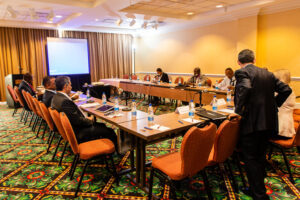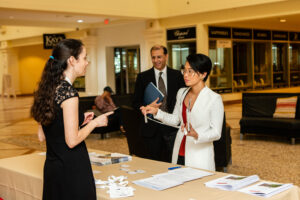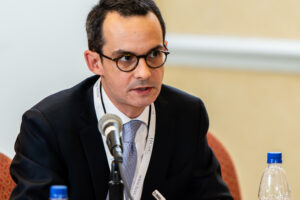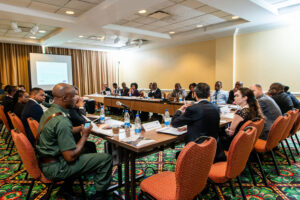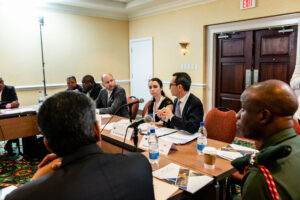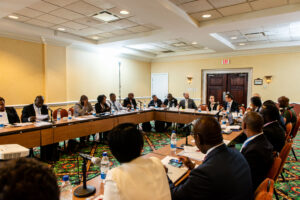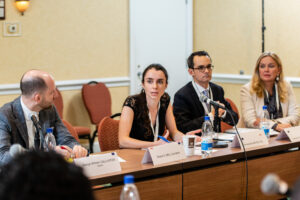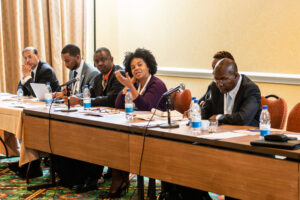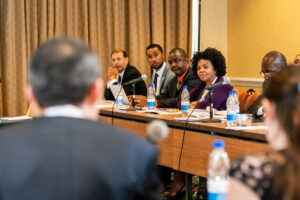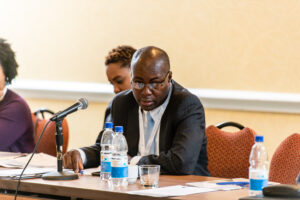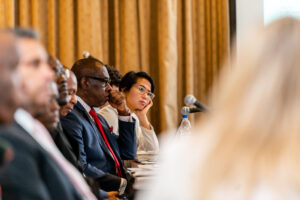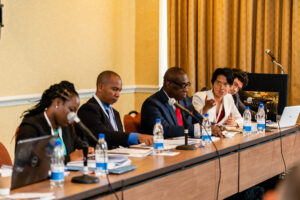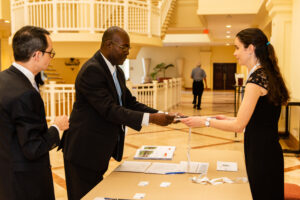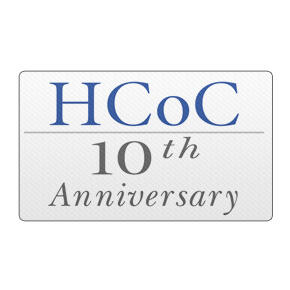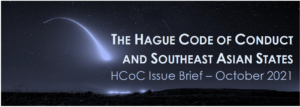Caribbean regional seminar on HCoC in St. Kitts and Nevis
27 November 2018
On 27 November 2018, the FRS organised a regional outreach seminar in St Kitts and Nevis dedicated to disarmament and non-proliferation in the Caribbean.
AGENDA
WELCOMING REMARKS
- Alexandre HOUDAYER, Secretary General, FRS
- Amb. Daniela TRAMACERE, Head of Delegation of the EU to the Eastern Caribbean States and the OECS
- Amb. Elisabeth EKLUND, Ambassador to the Caribbean, MFA of Sweden, representing the HCoC Chair
- Capt. Kayode SUTTON, Infantry Company Commander, Public Relations Officer, Saint Kitts and Nevis Defence Force
I/ THE HCoC: A KEY INSTRUMENT TO PROMOTE CONFIDENCE IN THE FIELD OF WMD DELIVERY VEHICLES
MODERATOR:
- Emmanuelle MAITRE, Research Fellow, FRS
Presenters:
PRESENTERS:
- Alexandre HOUDAYER, Secretary General, FRS
- George-Wilhelm GALLHOFER, Counsellor, Permanent Mission of Austria to the United Nations in New York, MFA of Austria, Immediate Central Contact of the HCoC
- Sharon G. BELL, Senior Policy Advisor, Directorate National Security, Cabinet of the President, Suriname
KEY ISSUES:
- Contribution of the Code to international security
- Being a Subscribing State: commitments and benefits
- Day-to-day implementation of the Code
II/ THE HCoC IN THE GLOBAL NON-PROLIFERATION REGIME & DISARMAMENT ENVIRONMENT
MODERATOR:
- Alexandre HOUDAYER, Secretary General, FRS
PRESENTERS:
- Emmanuelle MAITRE, Research Fellow, FRS
- O’Neil HAMILTON, Regional Coordinator, UNSCR 1540 / UN, CARICOM
KEY ISSUES:
- The HCoC in the broader regional non-proliferation framework
- Non-proliferation and disarmament: perspectives and priorities from the region
- Challenges and relevance of the Code for Caribbean countries

III/ THREE VIEWPOINTS ON BALLISTIC MISSILES & DUAL-USE TECHNOLOGIES
MODERATOR:
- Emmanuelle MAITRE, Research Fellow, FRS
PRESENTERS:
- Dr Dinshaw MISTRY, Professor of international relations, University of Cincinnati
- Lovely UMAYAN, Research Analyst and Project Manager, Stimson Center
- Paul WOHRER, Research Fellow, FRS
KEY ISSUES:
- Ballistic proliferation: a global risk
- Securing non-proliferation objectives while acting in favor or development and trade: the case of missiles
- Convergences and divergences between civilian and military technologies: the case of launchers
CONCLUDING REMARKS
- Alexandre HOUDAYER, Secretary General, FRS
- Michael PENNY, Senior Official, Ministry of Foreign Affairs, Saint Kitts and Nevis
